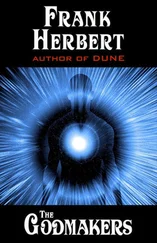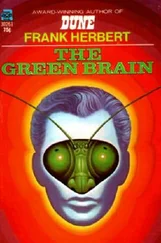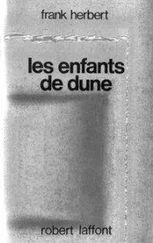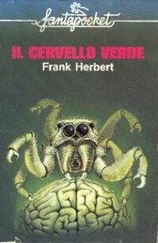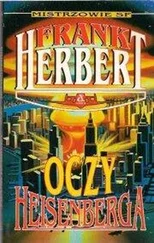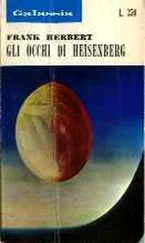Frank Herbert - Destination - Void
Здесь есть возможность читать онлайн «Frank Herbert - Destination - Void» весь текст электронной книги совершенно бесплатно (целиком полную версию без сокращений). В некоторых случаях можно слушать аудио, скачать через торрент в формате fb2 и присутствует краткое содержание. Год выпуска: 1965, Жанр: Фантастика и фэнтези, Эпическая фантастика, на английском языке. Описание произведения, (предисловие) а так же отзывы посетителей доступны на портале библиотеки ЛибКат.
- Название:Destination: Void
- Автор:
- Жанр:
- Год:1965
- ISBN:нет данных
- Рейтинг книги:5 / 5. Голосов: 1
-
Избранное:Добавить в избранное
- Отзывы:
-
Ваша оценка:
- 100
- 1
- 2
- 3
- 4
- 5
Destination: Void: краткое содержание, описание и аннотация
Предлагаем к чтению аннотацию, описание, краткое содержание или предисловие (зависит от того, что написал сам автор книги «Destination: Void»). Если вы не нашли необходимую информацию о книге — напишите в комментариях, мы постараемся отыскать её.
Destination: Void — читать онлайн бесплатно полную книгу (весь текст) целиком
Ниже представлен текст книги, разбитый по страницам. Система сохранения места последней прочитанной страницы, позволяет с удобством читать онлайн бесплатно книгу «Destination: Void», без необходимости каждый раз заново искать на чём Вы остановились. Поставьте закладку, и сможете в любой момент перейти на страницу, на которой закончили чтение.
Интервал:
Закладка:
"Jeeeeesus." Timberlake whispered. "And we shot an unknown program through it."
"Worse than that," Bickel said. "Because of that unrecorded tie-in to the computer..." He swallowed, wondering if they already appreciated the extent of this disaster. Turning, he indicated the piled cubes and rectangles, the sheafs of quasibiological nerve fiber that constituted his "Ox."
The others turned in the direction he pointed.
"That setup is, in effect, an extension of the computer," Bickel said.
"The error factor!" Prudence said. She put a hand to her mouth.
"We've introduced an error factor into the computer," Bickel said. "And that means, first, that we've introduced the probability - no, the certainty, of an unknown number of subspaces within the computer's space time. The program we've just thrown into the computer... to land, we know not where, will produce unknown topological linkages, new networks all through the system."
"In the memory storage banks, primarily," Timberlake said.
"And in the transducer nets," Bickel said.
"But this storage unit here produced the circuit-analysis information when I asked for it," Prudence said.
"Certainly," Bickel said. "But your demand amounted to a program for a subroutine. Where the information came from God alone knows. Just in the first stage, there are fifty lines leading out of this unit. And those lines filter through a buffer system, remember. The bits go out of here, charge through that buffer system, and are split up fifty ways, according to their differences in potential. That's just the first stage. At the next stage, your division is fifty times fifty. And then fifty times fifty times fifty. And so on."
It was like trying to work with a memory whose only certain property was that everything stored in it was stored according to a scatter pattern and could only be recovered if you knew the pattern.
Guaranteed selective amnesia. But that... was kind of human.
"This bank here was just like a knitting machine," Prudence said. "It took the threads of the record from this test setup and knitted them out through the storage banks of the entire system... smearing that record across an unknown number of retainer cells."
"An unknown number of times," Bickel said. "Remember that. And we only have one address for the entire record of that test, the address of a subroutine program. If that's lost the whole record's lost... unless we manage to match enough pieces of it in another program to pull it out of the system again."
"But isn't that pretty much the way human memory works?" Prudence asked. "And here's another thing: It produced the right answer at the translator. The right answer."
Bickel looked at her, turning that fact over in his mind.
She was right, by God! And not for the reason he had so glibly spouted.
The thing had produced the right answers in spite of errors and misprogramming. The processing procedure stank. It was heuristic and should not under any circumstances have yielded the desired output.
But it had. Why?
Bickel experienced a mental sensation as though his mind lurched. It was so much like a physical sensation he wondered that the others didn't notice.
The beautiful clarity with which he understood what had happened in the computer washed through him like a stimulant.
Didn't the others see it?
He looked at Prudence, at Timberlake, realized this had all occurred in a fraction of a second.
"For motion produceth nothing but motion."
The words rang through his mind, producing awe at the way apparently disconnected bits...ine of poetry here, a technical phrase there - could link with a simple turn of mathematics to produce a right answer in his mind.
Just the way it had happened in the computer.
Prudence, correctly interpreting Bickel's expression, spoke quietly, "You're onto something, John."
He nodded. "Prudence, you're our mathematician. What's pi?"
She stared at him, puzzled.
"I'm serious," Bickel said.
"The ratio of the circumference of a circle to its diameter," she said. "A rational approximation would be approximately twenty-two over seven. A closer approximation would be three hundred and fifty-five over a hundred and thirteen."
"For most applications, that approximation of pi would give us significant results?" Bickel asked.
"You don't have to ask that. You know it would."
"Okay, now tell me why you didn't answer my question by saying pi is a sweet concoction of starchy crust enclosing a filling often of fruit?"
She saw his seriousness in the way he stared at her, waiting. This bore on the problem in some way. She looked at Timberlake and he interpreted her motion as an appeal for help.
"It's obvious," Timberlake said. "You set up a category first by saying, 'You're our mathematician.' Then you asked: 'What's pi?' You didn't say: 'What's a pie?'"
"Yeah," Bickel said. "You had two screening references through which to filter the question and come up with the right answer. Then, because you sensed this was a rhetorical question in some way, you didn't try to explain first that there's no rational number for pi; you just gave me the rational approximations."
"Well, I knew I didn't have to explain that to you," Prudence said.
"That was category 'common information,'" Bickel said. "All you had to do was produce the significant answer."
"Holy cow!" Timberlake exploded, seeing where Bickel was leading them.
"Holy Ox, you mean," Bickel said.
Prudence whirled, pointed wildly toward the computer panel. "But it wasn't conscious! It couldn't have been!"
"It wasn't conscious," Bickel agreed. "But first crack out of the box, we've produced a significant result. And it was no accident. What can we say about the results of this test? First, we can say that the computer had sufficient information to produce an accurate answer despite errors in the system. Second, we can say that we've introduced a new kind of sense data into the system previously called a computer. We can go on calling this a computer, but it's a step up from 'computer' now. It has learned how to use a new kind of sense data."
Prudence started to speak, stopped.
"Screen everything I've said here through field theory," Bickel said. He grinned at them. "Then remember that we matched three energy sources in the Ox. The integrator there set them up to go out identically. The buffer potential of this storage unit here scattered those pulses through the system. They were divided and redivided... but wherever they matched they reinforced each other."
"In itself, the original program pulse was a kind of comparator," Timberlake said. "The computer could compare for accuracy on the basis of signal strength."
"And the computer already knew how to compare the AAT signals for accuracy by screening them through a code-matching grid," Bickel said. "Signal strength was merely another kind of grid."
"If you're not too busy congratulating yourself," Prudence said, "consider how some of those rematched signals must've grown in strength. The probability is that some elements of the computer have been shocked out of -"
"We're still running," Bickel said, but he spoke defensively, realizing that Prudence was right. There were overload fuses throughout the filter to protect components, but stray signals overriding barrier potentials could have played hob with some of the master programs. He looked at the overhead screen which showed Flattery manning the Com-central board.
Flattery appeared relaxed, but watchful, his gaze traversing the big board.
Damn her! he thought.
One instant everything had been rosy, full of elation that the Ox had come a short step up the ladder - not into consciousness... but toward it. And all she could think to do was throw cold water on them.
Читать дальшеИнтервал:
Закладка:
Похожие книги на «Destination: Void»
Представляем Вашему вниманию похожие книги на «Destination: Void» списком для выбора. Мы отобрали схожую по названию и смыслу литературу в надежде предоставить читателям больше вариантов отыскать новые, интересные, ещё непрочитанные произведения.
Обсуждение, отзывы о книге «Destination: Void» и просто собственные мнения читателей. Оставьте ваши комментарии, напишите, что Вы думаете о произведении, его смысле или главных героях. Укажите что конкретно понравилось, а что нет, и почему Вы так считаете.

